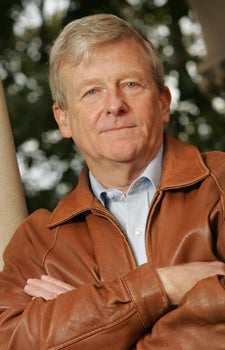Dishing up Gourmet Philosophy
“No department has improved more over the last decade than USC’s.”
Which discipline could the speaker be describing? Economics? Video gaming? Immunology, or maybe stem cell medicine?
All good guesses of top USC programs — and all wrong.
In recent rankings of graduate philosophy departments across the country, USC Dornsife’s School of Philosophy, in which scholars study the likes of Plato, Kant, Russell and Wittgenstein, has surged to No. 11, up from the 46th spot just a few years ago.
The quote above came from Brian Leiter, a University of Chicago professor who created the Philosophical Gourmet Report rankings, the most widely respected poll of the discipline.
The swift rise of USC Dornsife’s philosophy school is due in part to a dozen new hires in the last decade, including many from Oxford University, one of the world’s great centers of philosophy.
Most recently, senior philosophers Gabriel Uzquiano and Ralph Wedgwood, global leaders in their respective fields of philosophical logic and normative ethics (or for nonphilosophers, the study of “how things should be”), joined USC Dornsife. And John Hawthorne, who holds one of Oxford’s most prestigious chairs in philosophy, will begin teaching part time in USC Dornsife this Fall.
“We’re bringing in world-class faculty and building innovative programs around them,” said Scott Soames, who came from Princeton University in 2004 and since 2007 has helped engineer USC Dornsife’s meteoric rise as department chair. “This is just the beginning.”

Scott Soames, came from Princeton University in 2005 and since 2007 has helped engineer USC’s meteoric rise as department chair. “This is just the beginning,” he said. Photo by Philip Channing.
Nearly 5,500 miles away at Oxford, Uzquiano and Wedgwood said USC Dornsife’s quick ascent caught their attention early on. After Soames’ arrival, the department jumped to 23rd in the rankings.
“What struck me was the department was really ambitious,” Uzquiano said. “I felt like I was moving to a department on an upswing, that would soon be among the best in the world.”
Uzquiano and Wedgwood also said they were impressed by USC Dornsife’s “inspired” choice to hire a number of promising young philosophers.
“Philosophers, of course, are addicted to debate and discussion, and it’s good to have great colleagues to talk with,” Wedgwood said.
While bringing in some of the world’s best faculty, USC Dornsife also committed itself to transforming philosophy programs for undergraduate and graduate students.
Student enrollment in the department has doubled, due in large part to the now highly successful philosophy, politics and law (PPL) major for undergraduates, which fuses the critical-thinking skills bred in philosophers with the real-world applications of politics and law.
This year, 185 undergraduates are on track to depart USC Dornsife with the degree, up from 18 enrolled students when the major was initially offered just three years ago.
“It combines the three disciplines in a way that makes sense,” said Andrei Marmor, professor of philosophy and Maurice Jones Jr. Professor of Law, who helped develop the PPL program. “[The major] combines the training in careful and critical thinking that is characteristic of philosophical analysis, with a broad range of moral and political dilemmas that we face in the world we live in.”
The new major was the biggest draw to USC Dornsife for Weston Rowland ’12, among the program’s first graduates last year. Rowland is currently teaching English to elementary and middle school students in South Korea. He plans to attend law school this fall.
“If you take neuroscience [in college], and you decide you don’t like neuroscience, you have a problem,” Rowland said. “But if you take philosophy, politics and law, and you decide you don’t like law, you can be a politician, and if you don’t like philosophy, you can go be a teacher.
“You can go do anything you want because you’re really prepared to think critically about any important problem.”